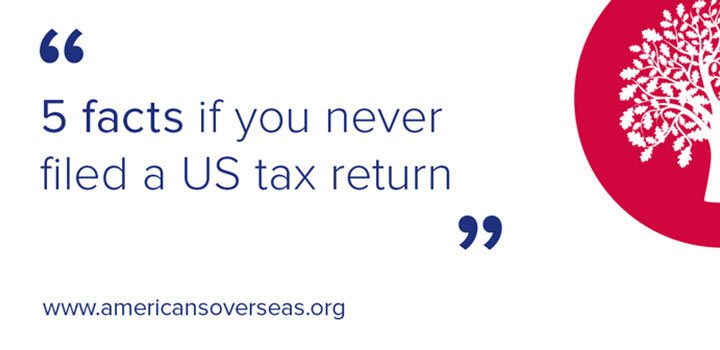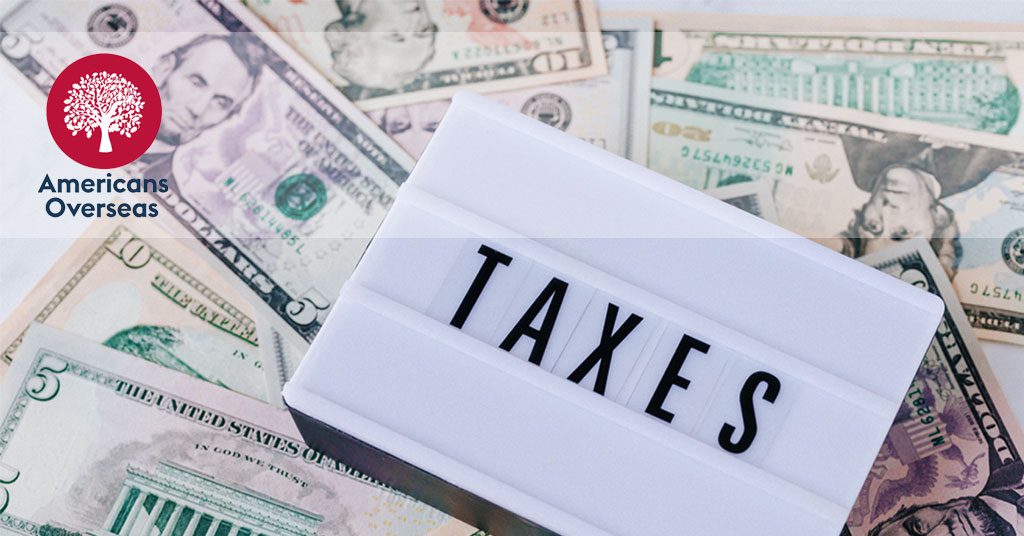
US tax for accidental Americans living abroad

Wallis was born in the US and has spent his entire life in Europe, but it turns out that the 35-year-old French American entrepreneur owes tens of thousands of dollars in taxes to the United States.
His mother was French, but he holds U.S. citizenship through his American father.
Three years ago, he found out he was still subject to US tax law. He is one of potentially thousands of “accidental Americans” around the world — U.S. citizens who neither live in the country nor have any real ties to the United States.
Under a citizenship-based taxation system in place in the United States, accidental Americans are subject to US tax on their global income, no matter where they live or work.
Wallis thinks this is an unjust situation, adding that it’s money he could invest in France, where his family lives. Of course, he is willing to pay what he owes in France, but he thinks paying taxes to the U.S. is a robbery.
He says he doesn’t know what will happen next, but he won’t be hiding from the authorities, because he feels that he has done nothing wrong.
Accidental Americans in Europe and US tax
There has been a growing movement by “accidental Americans,” particularly in Europe, to try to get U.S. authorities to realize the burden their American citizenship is adding to their lives.
Unlike other nations, the United States enforces a tax system based on citizenship rather than residency. In 2010, Congress enacted the Foreign Account Tax Compliance Act, also known as FATCA, to crack down on tax evasion by Americans with financial assets abroad. The law requires foreign banks to report financial accounts held by U.S. citizens to the Internal Revenue Service (IRS) in the United States.
As a result, many “accidental Americans” learned they may owe US tax after getting contacted by the banks in their home countries.
Looming US tax bill for Accidental Americans
Lehagre, a commercial manager, found himself in that exact situation.
Born in California, to a French father and American mother, he was 2 when his parents divorced and he and his father moved to France.
He grew up and studied there, and now works in Paris. In 2014, his French bank contacted him asking for his US tax identification number. Thinking it was a mistake, Lehagre ignored the request despite repeated warnings. The requests didn’t stop.
He did some research and discovered that he was also an “accidental American” and could face a looming US tax bill.
Lehagre says although he has only lived in the United States for a short time as a toddler, never studied there, voted, or paid taxes; he is being forced into the administrative system that obliges him to fill out forms, pay a lawyer, and have his bank accounts scrutinized.
Rescinding his U.S. citizenship would cost him more than $3,000 on top of the legal and accounting fees to start the procedure.
Lehagre used to be so proud of telling everyone that he was born in the United States, but today he feels disappointed about the American tax system.
More questions on US tax for accidental Americans living abroad?
We, the founders of Americans Overseas, were born in the Netherlands and obtained our American nationality through our (American) mother. When we heard about this for the first time around 2013, we were in total disbelief (it can’t be true!), anger (how can they do this?), fear (am I going to get fined or pick up other problems?), and panic (what should I do?). It is (unfortunately) true that there is an additional American tax levy. But there’s no information from the local government, and when approached, the consulate referred us to the IRS, and the IRS was impenetrable.
That’s why we started this initiative to help people from all over the world by providing proper information to avoid unnecessary panic and offering help free of obligation and free of charge. If needed, we have a network of affordable professionals (accountants) who can help you with your tax obligations.
If you have more questions about US tax you can contact us at Americans Overseas.
Contact us for more information
Source: NBC
Frequently asked questions
Understanding the US tax system, the obligations, and all the additional terms can be difficult. Especially if one lives outside of America. Is your question not answered? Contact us.
-
Who is required to file taxes in the US?
U.S. citizens and resident aliens who live abroad are generally required to file a federal income tax return and pay taxes on their worldwide income.
Read more... about Who is required to file taxes in the US? -
Do US citizens living abroad still have to file taxes in the US?
Yes, US citizens are required to file taxes on their worldwide income, regardless of where they are living.
Read more... about Do US citizens living abroad still have to file taxes in the US? -
How can I cash my US check?
Received an American check? You can cash your check in the following ways: cash the check at your own bank, transfer to another person (endorsement), cash checks using an online service or cash the check by another bank.
Read more... about How can I cash my US check? -
Are there any special tax forms required for US citizens living abroad?
US citizens living abroad may be required to file Form 2555 and/or Form 1116 to claim the foreign-earned income exclusion.
Read more... about Are there any special tax forms required for US citizens living abroad? -
What is FBAR filing?
FBAR (Foreign Bank Account Report) filing is the requirement for certain U.S. individuals and entities to report their foreign financial accounts to the Financial Crimes Enforcement Network (FinCEN) of the U.S. Department of Treasury. The FBAR filing requirement applies to U.S. persons who have a financial interest in, or signature authority over, one or more foreign financial accounts if the aggregate value of those accounts exceeds $10,000 at any time during the calendar year.
Read more... about What is FBAR filing?





